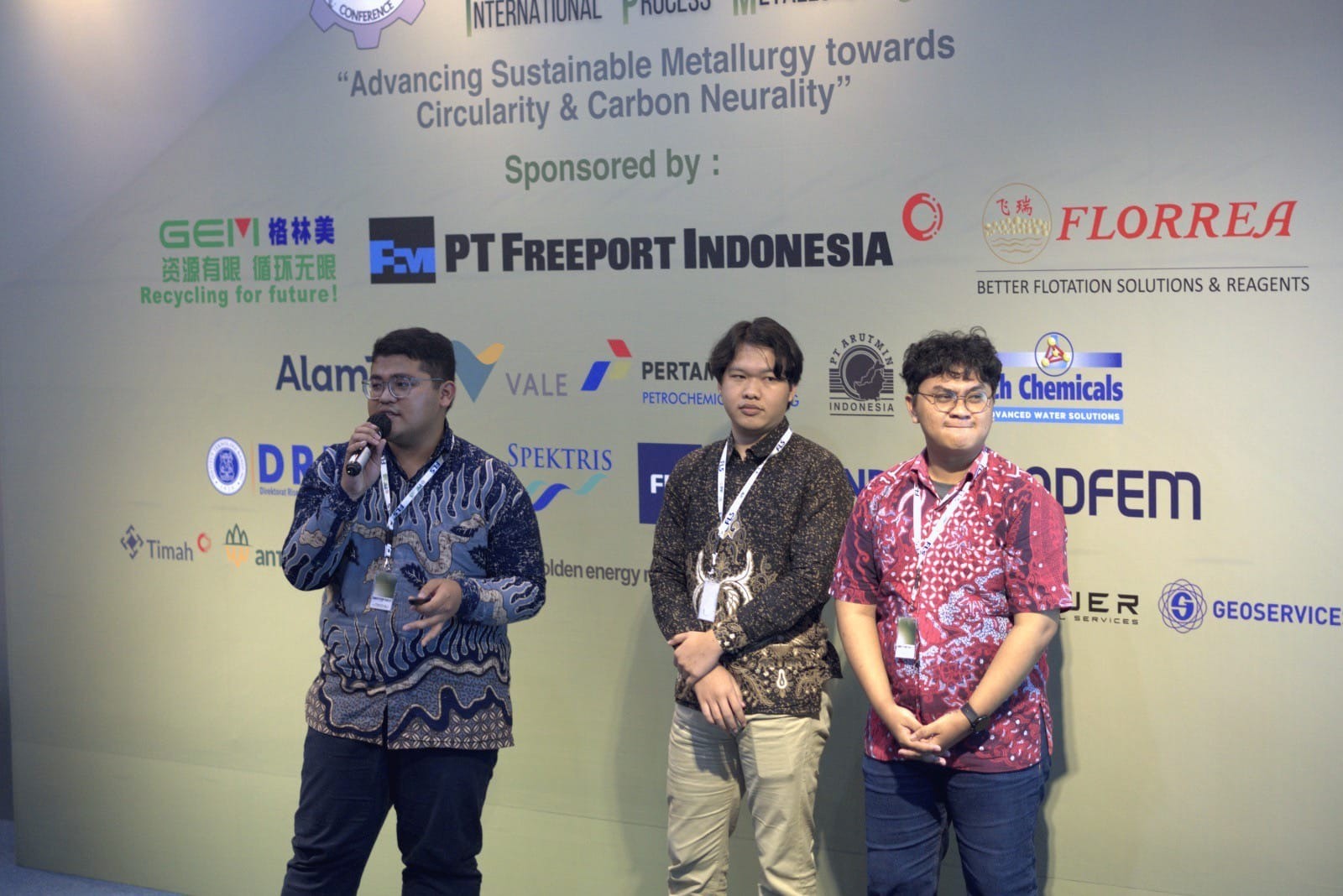SpectroLab: Pioneering Portable Filtration Solution by ITB Students to Tackle Textile Industry Waste
By Maharani Rachmawati Purnomo - Mahasiswa Oseanografi, 2020
Editor M. Naufal Hafizh, S.S.

BANDUNG, itb.ac.id — The discharge of synthetic dyes from the textile industry is a significant contributor to environmental pollution. One of the solutions developed to address this problem is the Metal Organic Framework (MOF) filter, crafted by the National Research and Innovation Agency (BRIN). However, its application requires sequential steps that are conducted separately, consuming considerable time.
To tackle this inefficiency, three Electrical Engineering students from the 2020 cohort at the Institut Teknologi Bandung (ITB)—Muhammad Raihan, Elmo Ryaner Panggabean, and Gilbert Ng—created SpectroLab as their final project. SpectroLab is a portable filtration reactor equipped with a spectrophotometer. "This product integrates the sampling, filtration process, and measurement for the treatment of textile wastewater. In our tests, we used indigo carmine (purple) dye wastewater," explained Gilbert.
Initially, the sample is placed in a 250 ml sample reservoir and then transported using a peristaltic pump. The filtration reactor then combines the dye waste sample with MOF filter powder. The temperature and mixing speed can be adjusted to ensure optimal filtration. Once the filtration process is complete, the filtered wastewater is measured for absorbance in the visible light spectrum using spectrophotometry. The obtained measurement data can be stored in local storage with a capacity of 32 GB.
Users can control the filtration process with "Start" and "Stop" buttons. Measurements can also be repeated multiple times in one or more sessions. The accuracy of SpectroLab reaches 90% for peak absorbance values and 98.57% for peak wavelength values.
>
Gilbert mentioned that their project also integrated knowledge from outside Electrical Engineering, including Chemistry and Physics. The development and testing of the product were successfully aligned with their expectations. This project was guided by their supervising lecturer, Ir. Akhmadi Surawijaya, S.T., M.Eng. SpectroLab was showcased at the Electrical Engineering Days (EE Days) 2024, held in the Multipurpose Room, CRCS Building, ITB Ganesha Campus, from Wednesday to Friday (June 12-14, 2024). Their hard work earned them the Best Engineering Research award, recognizing the group’s outstanding research, development, and documentation in their final paper. The product also received commendation from ITB Rector, Prof. Reini Wirahadikusumah, Ph.D.
EE Days is the culmination of the Capstone Design Program for the Electrical Engineering Study Program. This program is designed to sharpen students' thinking based on engineering design principles, understanding user problems and needs, designing and developing systems based on problem-solving, and fostering perseverance and resilience. In addition to producing a final product, students are required to submit individual papers, group papers, posters, videos, and a final project book.
The team hopes that their innovation will not only advance MOF filter development but also play a significant role in wastewater management. “Our immediate goal is to secure a patent for SpectroLab,” said Gilbert.

.jpg)

.jpg)
.jpg)
.jpg)

